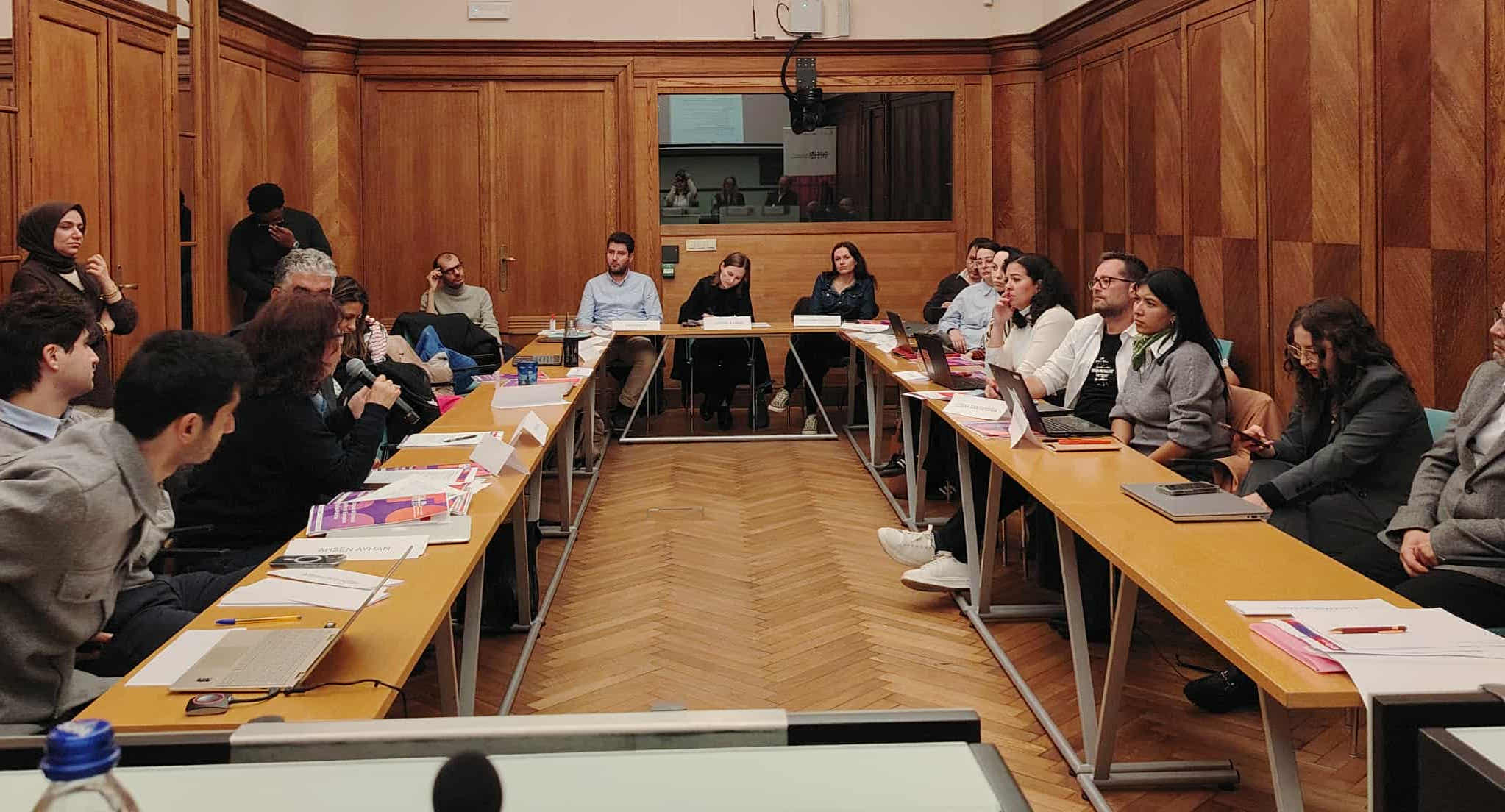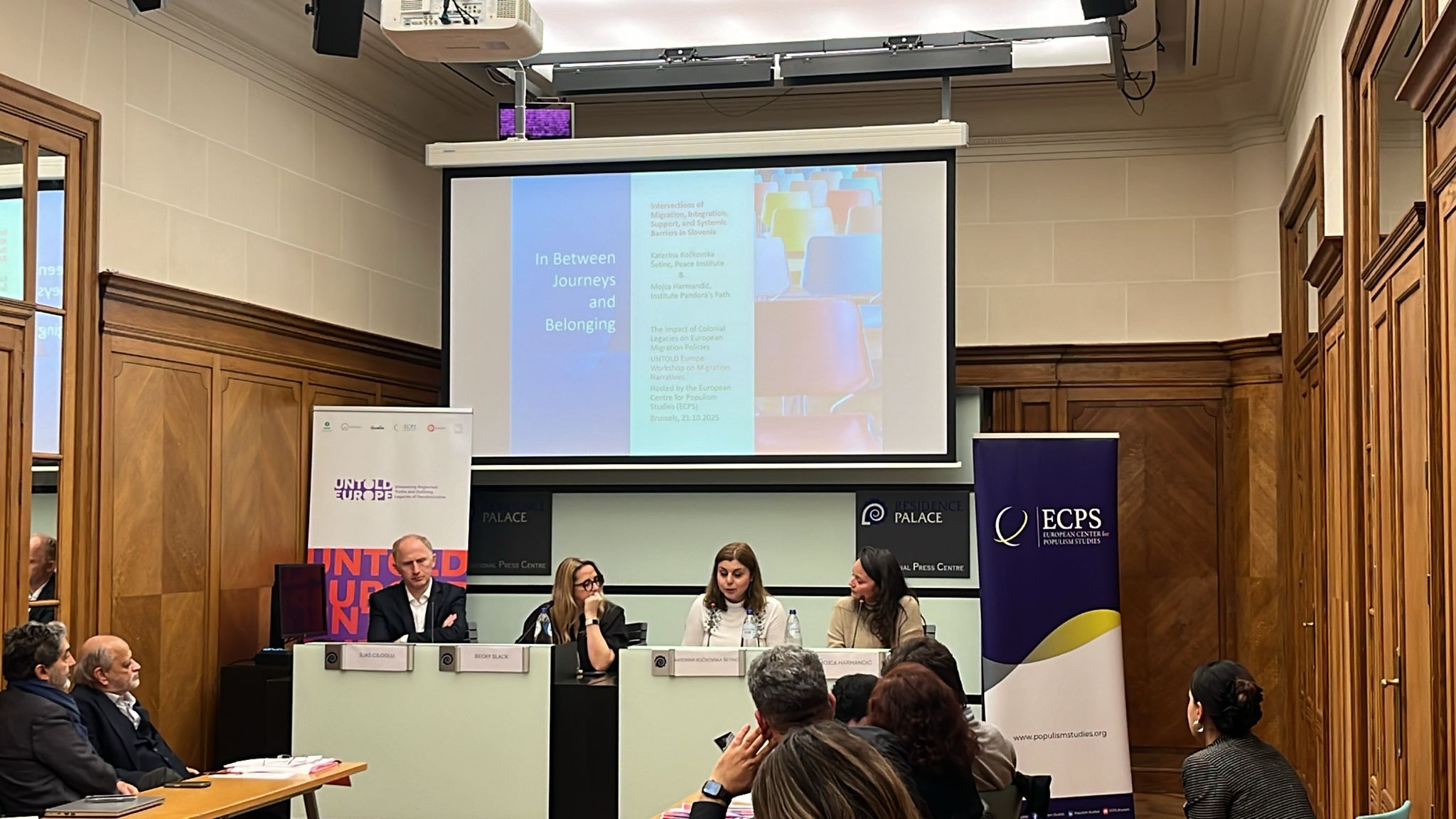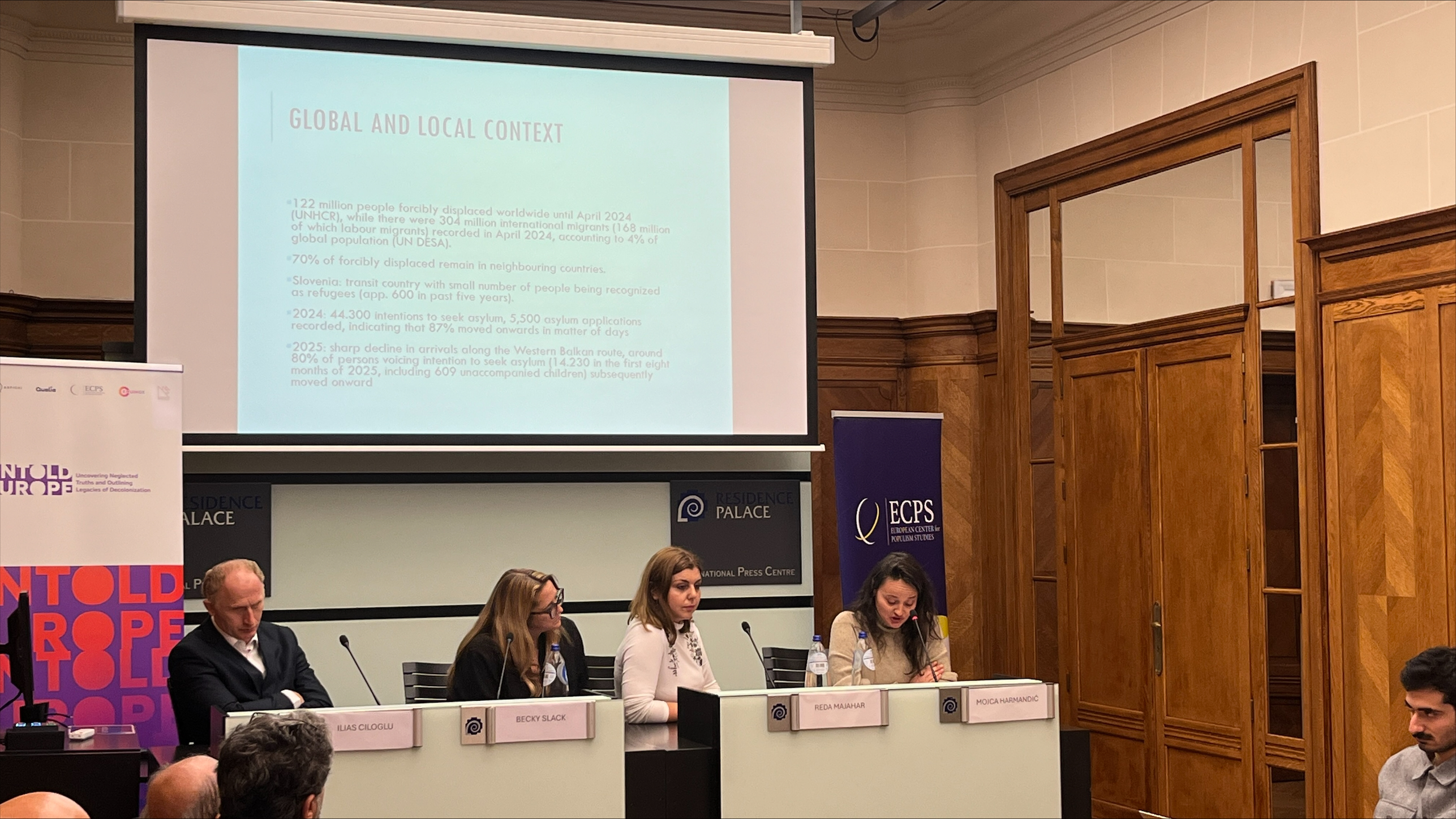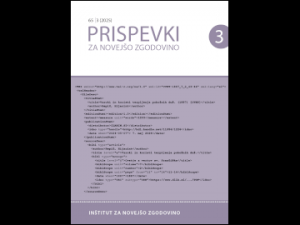The Impact of Colonial Legacies on European Migration Policies
27. 10. 2025 | Human Rights and Minorities
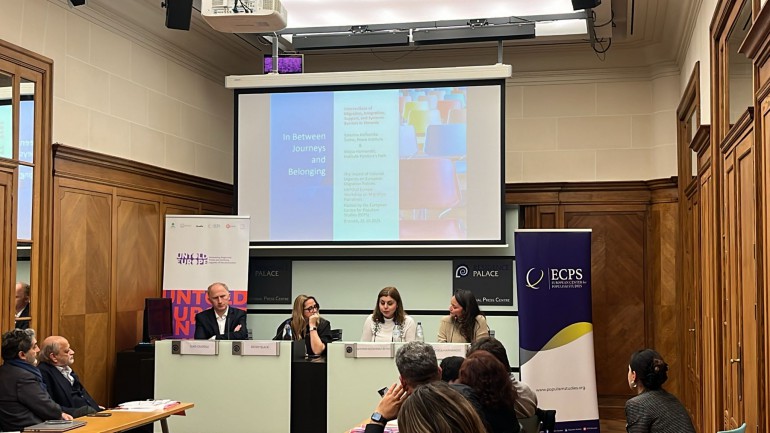
Colonial legacies are not merely part of the past – their influence continues to shape European migration policies today. These influences were discussed at an international workshop organized within the framework of the UNTOLD Europe project by the European Centre for Populism Studies (ECPS) on 21 October 2025 in Brussels.
As part of the panel on Migration Experiences – Voices and Perspectives, Katerina Kočkovska Šetinc from the Peace Institute and Mojca Harmandić from the Pandora’s path Institute presented a joint contribution titled “In Between Journeys and Belonging: Intersections of Migration, Integration, Support, and Systemic Barriers in Slovenia.”
In her presentation, Katerina drew on key findings from research conducted by the Peace Institute within the projects MORE, JUSTMIG, UNFORGOTTEN, and FULL-PROOF.
The findings of mentioned studies reveal that migrants in Slovenia face multiple layers of insecurity shaped by the interplay of migration, social, and criminal justice policies, as so-called “voluntary returns” often occur under conditions of pressure and fear of isolation or deportation, while temporary workers from countries such as Bangladesh and India enter the Slovenian labour market already indebted and, due to their dependence on employers, are frequently exposed to unfair labour practices. A particularly vulnerable group includes foreign nationals accused of offences related to irregular border crossings. They face lengthy legal procedures, limited access to information, inadequate interpretation, and the structural issue of overcrowding in detention and prison facilities. Katerina also highlighted the unresolved situation of the Erased, stressing the urgent need for legislative measures that would restore their legal status and ensure full redress for those affected.
